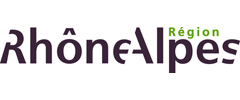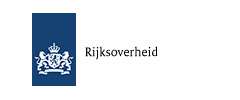WECF helps Roma children
WECF helps 11 Roma children in Garla Mare to obtain identity papers
16.09.2005 |Anna Samwel
Maria is 12 years old, lives in Garla Mare and is not allowed to go to school. This is because she was not registered when she was born, so now she has no identity papers. Officially she doesn't exist. This means that she can never in her life get any social or medical assistance, and no education. Her parents are too poor to pay the fee of 27 euro's in order to obtain identity papers for her, which is still possible.
In Romania many Roma children were not registered when they were born. Other children have been registered but lost their identity papers later and now have the same problems as Maria. The importance of registration and a decent education is often not fully realised by poor families.
WECF paid the fee to register Maria and ten other children, whose families don't have the financial possibility to register their children.

Roma woman helps with the poor and mentally ill
Mihaela Preda is dealing with these kind of problems in Garla Mare. She is Roma herself and works at the dispensary as a mediator. She takes care about the medical, legal and social problems of the Roma community, and is the intermediate person between Roma, local authorities and the medics. She helps wherever she can and is very dedicated to what she is doing; helping people.
Also in her free time she is helping whenever she can, also out of religious perspective. Primavara, a middle aged woman who is said to be mentally ill, is begging everyday for a piece of bread at Mihaela's door, and won't leave before she got something to eat for herself and her three children.
When the parents have money to pay the authorities to register the children, Mihaela is spending her own time to register the children in the city.
But some families are too poor to pay the fee of 27 euro. Mihaela herself has only a salary of less than 100 euro so she is not able to pay this from her own salary, which she would if she could. She contacted WECF on the problem of the children without identity papers. WECF paid 27 euro each to register four children who have not been registered. WECF paid 14 Euro each for 7 children identity papers because their family lost them.
Ilie, 10 years, has no electricity at his house to do homework in the evening
Ilie is 10 years old and has no identity papers. His parents just didn't had money to register him. He is lucky and goes to school because he learns exceptionally well and gets only good to very good notes. This is why the school and his very nice teacher accepted him even without identity papers. He enjoys going to school and is studying voluntarily even in the holidays. This is remarkable, because his parents can not read and write and they live under harsh conditions. Ilie understands that his family has little money, and he never asks for money if he knows that there is not.
The family owns a house which is inherited from the father, but they are not connected to electricity. They are not able to pay the connection fee, which is 300 euro. If they would get only a grand, they would pay it bit by bit. But for such a poor family it is not possible to get a grand. Especially in the winter they really need electricity because their boy wants to study in the evening hours.
The Roma work as seasonal field labourers
They are serious people who do all their best to survive, take care for the children as good as possible, and work wherever they can. The mother said she would even work at night if she could. But there is no work for them. In some periods of agricultural working peaks they have some work for Romanian farmers. But then they are mostly paid in a meal and in the crop they have harvested, for example a sack of grain. From this they bake bread and they can feed a few gooses. They also grow some vegetables like tomatoes, beans and paprika in their garden.
They get social help from the state, but this is not enough to survive. These months the social help is also shortened with 30% and they only get 21 euro in stead of 36 euro a month for the whole family. They also get 17 Euro child allowance for the 5 year old daughter. When Ilie will be registered they will get only 2,80 more, because extra children don't get much more money, but still is this very welcome. Towards me they don't behave desperate or meddlesome, but tell about their problems a bit ashamed, and quite proud about their clever son.
Children and parents are illiterate
In another house the situation is totally different. Here live four brothers; 7, 9, 13 and 17 years old, and three girls, 5, 11 and 15 years old, who lost their identity papers. They live in a family consisting of 27 people who live in two small houses. If they eat, they eat together. The father told that they lost the identity papers because there are too many children in the house. They find papers and take them away. The importance of these identity paper is often not realised because people are illiterate, including the older generation.
Some of the smaller children go to school, but are not yet able to read or write. The ones who don't have identity papers were not accepted in school and send home. The parents promise, that the young ones will be send to school as soon as they have identity papers. For the older ones it is already too late, they will have no education whatsoever, just as their parents. I got the impression, that there is not much trust in the capacities of the children. The strict necessity of education is not realised.
The perspectives of these children are very poor. The seven year old boy tells he wants to become a doctor when he is grown up. But Claudia, the 15 year old daughter is already married and can only laugh about this dream of a future. She has no house for her family, but will have children herself soon. And no means to bring them up in dignity.
The family lives in a poor area in the village. Most houses there are made of bricks of clay and straw. It is good isolating material, but doesn't have the same properties as stone. There is no fence around the house, nor a garden. There is only bare ground, which is a source of dust in summer, and turns into a muddy swamp during rains. Without a fence, animals can not be kept, they would run away, and vegetables can not be grown, they would be stolen.
When we arrive at the houses the whole family and their neighbours are gathering around us. The young children just gaze at us, an older girl asks for money to go to the city. The family head is telling exited about their situation. If it is possible for us to send a truck with help, like oil, flower, cloths and shoes? They really need it! His wife also assures us that they are very poor, and that she often doesn't know with what to feed the children. Especially in the winter cloths and shoes are needed. Many children are walking barefoot all winter.

Family with 3 children has no house
Quite another story is a family who doesn't have a house at all. They live in a 'barrack' at the border of the village which the mayor gave to them. Two of the three children are not registered, they just didn't have money. WECF is paying the registration costs for these two children, they are 4 and 13 years old. They are not attending school or kindergarten. The four year old will be send to school when he obtains his identity papers by the time he will turn 6 years.
The family is no originally from Garla Mare and they have lived in many different places. In the city the children were send out on the street to beg, which was the main family income. In the village this is not possible. They live here from the social help, which is by far not enough and they have many problems. They seem very decent people, but poverty has left its traces.
5% of the children are undernourished
Poverty is still a big problem in Romania. 5% Of the children are undernourished, and 21.5% of the population lives under the national poverty line. It are not only hopeless individual cases, but it is a structural problem with little hope for a solution in the near future. Many individuals are suffering who all have their own personal drama's. Non-registered Roma people exist not only in Garla Mare, but are common all over Romania. The large scale and severeness of the problems is incredible for a European country which is supposed to be a member of the European Union in 2007.
A lot of money and structural changes are needed. On the short term, some suffering can be cured with small donations like WECF gave for the identity papers, or even grants.
While writing this article, a private donor has already been found to help Ilie's family to pay the electricity connection with 300 euro. This is a small sum for a someone from Western-Europe, but changes the life of a family in Garla Mare enormously.
WECF works on long-term basis with the village of Garla Mare. Every few months I myself or other volunteers working with WECF visit the village and bring goods and help the local citizenís through self-help projects to improve their situation and to, hopefully, move many families out of extreme poverty into a life of more dignity.
September 2005
Anna Samwel



































